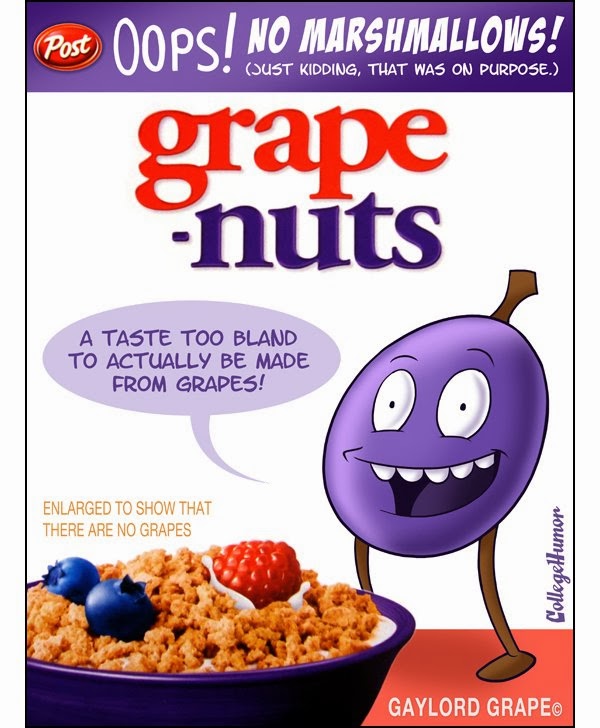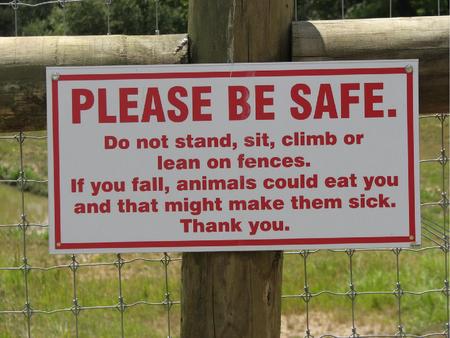Commencement Speech for 2012 Graduating Class
Dr. Wong, Dr. Keough, Mrs. Novogroski, Ms. Curran, members of the board of education, family and friends of the graduates, ladies and gentlemen of the Wellesley High School class of 2012, for the privilege of speaking to you this afternoon, I am honored and grateful. Thank you.
So here we are… commencement… life’s great forward-looking ceremony. (And don’t say, “What about weddings?” Weddings are one-sided and insufficiently effective. Weddings are bride-centric pageantry. Other than conceding to a list of unreasonable demands, the groom just stands there. No stately, hey-everybody-look-at-me procession. No being given away. No identity-changing pronouncement. And can you imagine a television show dedicated to watching guys try on tuxedos? Their fathers sitting there misty-eyed with joy and disbelief, their brothers lurking in the corner muttering with envy. Left to men, weddings would be, after limits-testing procrastination, spontaneous, almost inadvertent… during halftime… on the way to the refrigerator. And then there’s the frequency of failure: statistics tell us half of you will get divorced. A winning percentage like that’ll get you last place in the American League East. The Baltimore Orioles do better than weddings.)
But this ceremony… commencement… a commencement works every time. From this day forward… truly… in sickness and in health, through financial fiascos, through midlife crises and passably attractive sales reps at trade shows in Cincinnati, through diminishing tolerance for annoyingness, through every difference, irreconcilable and otherwise, you will stay forever graduated from high school, you and your diploma as one, ‘til death do you part.
No, commencement is life’s great ceremonial beginning, with its own attendant and highly appropriate symbolism. Fitting, for example, for this auspicious rite of passage, is where we find ourselves this afternoon, the venue. Normally, I avoid clichés like the plague, wouldn’t touch them with a ten-foot pole, but here we are on a literal level playing field. That matters. That says something. And your ceremonial costume… shapeless, uniform, one-size-fits-all. Whether male or female, tall or short, scholar or slacker, spray-tanned prom queen or intergalactic X-Box assassin, each of you is dressed, you’ll notice, exactly the same. And your diploma… but for your name, exactly the same.
All of this is as it should be, because none of you is special.
You are not special. You are not exceptional.
Contrary to what your u9 soccer trophy suggests, your glowing seventh grade report card, despite every assurance of a certain corpulent purple dinosaur, that nice Mister Rogers and your batty Aunt Sylvia, no matter how often your maternal caped crusader has swooped in to save you… you’re nothing special.
Yes, you’ve been pampered, cosseted, doted upon, helmeted, bubble-wrapped. Yes, capable adults with other things to do have held you, kissed you, fed you, wiped your mouth, wiped your bottom, trained you, taught you, tutored you, coached you, listened to you, counseled you, encouraged you, consoled you and encouraged you again. You’ve been nudged, cajoled, wheedled and implored. You’ve been feted and fawned over and called sweetie pie. Yes, you have. And, certainly, we’ve been to your games, your plays, your recitals, your science fairs. Absolutely, smiles ignite when you walk into a room, and hundreds gasp with delight at your every tweet. Why, maybe you’ve even had your picture in the Townsman! [Editor’s upgrade: Or The Swellesley Report!] And now you’ve conquered high school… and, indisputably, here we all have gathered for you, the pride and joy of this fine community, the first to emerge from that magnificent new building…
But do not get the idea you’re anything special. Because you’re not.
The empirical evidence is everywhere, numbers even an English teacher can’t ignore. Newton, Natick, Nee… I am allowed to say Needham, yes? …that has to be two thousand high school graduates right there, give or take, and that’s just the neighborhood Ns. Across the country no fewer than 3.2 million seniors are graduating about now from more than 37,000 high schools. That’s 37,000 valedictorians… 37,000 class presidents… 92,000 harmonizing altos… 340,000 swaggering jocks… 2,185,967 pairs of Uggs. But why limit ourselves to high school? After all, you’re leaving it. So think about this: even if you’re one in a million, on a planet of 6.8 billion that means there are nearly 7,000 people just like you. Imagine standing somewhere over there on Washington Street on Marathon Monday and watching sixty-eight hundred yous go running by. And consider for a moment the bigger picture: your planet, I’ll remind you, is not the center of its solar system, your solar system is not the center of its galaxy, your galaxy is not the center of the universe. In fact, astrophysicists assure us the universe has no center; therefore, you cannot be it. Neither can Donald Trump… which someone should tell him… although that hair is quite a phenomenon.
“But, Dave,” you cry, “Walt Whitman tells me I’m my own version of perfection! Epictetus tells me I have the spark of Zeus!” And I don’t disagree. So that makes 6.8 billion examples of perfection, 6.8 billion sparks of Zeus. You see, if everyone is special, then no one is. If everyone gets a trophy, trophies become meaningless. In our unspoken but not so subtle Darwinian competition with one another–which springs, I think, from our fear of our own insignificance, a subset of our dread of mortality — we have of late, we Americans, to our detriment, come to love accolades more than genuine achievement. We have come to see them as the point — and we’re happy to compromise standards, or ignore reality, if we suspect that’s the quickest way, or only way, to have something to put on the mantelpiece, something to pose with, crow about, something with which to leverage ourselves into a better spot on the social totem pole. No longer is it how you play the game, no longer is it even whether you win or lose, or learn or grow, or enjoy yourself doing it… Now it’s “So what does this get me?” As a consequence, we cheapen worthy endeavors, and building a Guatemalan medical clinic becomes more about the application to Bowdoin than the well-being of Guatemalans. It’s an epidemic — and in its way, not even dear old Wellesley High is immune… one of the best of the 37,000 nationwide, Wellesley High School… where good is no longer good enough, where a B is the new C, and the midlevel curriculum is called Advanced College Placement. And I hope you caught me when I said “one of the best.” I said “one of the best” so we can feel better about ourselves, so we can bask in a little easy distinction, however vague and unverifiable, and count ourselves among the elite, whoever they might be, and enjoy a perceived leg up on the perceived competition. But the phrase defies logic. By definition there can be only one best. You’re it or you’re not.
If you’ve learned anything in your years here I hope it’s that education should be for, rather than material advantage, the exhilaration of learning. You’ve learned, too, I hope, as Sophocles assured us, that wisdom is the chief element of happiness. (Second is ice cream… just an fyi) I also hope you’ve learned enough to recognize how little you know… how little you know now… at the moment… for today is just the beginning. It’s where you go from here that matters.
As you commence, then, and before you scatter to the winds, I urge you to do whatever you do for no reason other than you love it and believe in its importance. Don’t bother with work you don’t believe in any more than you would a spouse you’re not crazy about, lest you too find yourself on the wrong side of a Baltimore Orioles comparison. Resist the easy comforts of complacency, the specious glitter of materialism, the narcotic paralysis of self-satisfaction. Be worthy of your advantages. And read… read all the time… read as a matter of principle, as a matter of self-respect. Read as a nourishing staple of life. Develop and protect a moral sensibility and demonstrate the character to apply it. Dream big. Work hard. Think for yourself. Love everything you love, everyone you love, with all your might. And do so, please, with a sense of urgency, for every tick of the clock subtracts from fewer and fewer; and as surely as there are commencements there are cessations, and you’ll be in no condition to enjoy the ceremony attendant to that eventuality no matter how delightful the afternoon.
ing life, the distinctive life, the relevant life, is an achievement, not something that will fall into your lap because you’re a nice person or mommy ordered it from the caterer. You’ll note the founding fathers took pains to secure your inalienable right to life, liberty and the pursuit of happiness–quite an active verb, “pursuit”–which leaves, I should think, little time for lying around watching parrots rollerskate on Youtube. The first President Roosevelt, the old rough rider, advocated the strenuous life. Mr. Thoreau wanted to drive life into a corner, to live deep and suck out all the marrow. The poet Mary Oliver tells us to row, row into the swirl and roil. Locally, someone… I forget who… from time to time encourages young scholars to carpe the heck out of the diem. The point is the same: get busy, have at it. Don’t wait for inspiration or passion to find you. Get up, get out, explore, find it yourself, and grab hold with both hands. (Now, before you dash off and get your YOLO tattoo, let me point out the illogic of that trendy little expression–because you can and should live not merely once, but every day of your life. Rather than You Only Live Once, it should be You Live Only Once… but because YLOO doesn’t have the same ring, we shrug and decide it doesn’t matter.)
None of this day-seizing, though, this YLOOing, should be interpreted as license for self-indulgence. Like accolades ought to be, the fulfilled life is a consequence, a gratifying byproduct. It’s what happens when you’re thinking about more important things. Climb the mountain not to plant your flag, but to embrace the challenge, enjoy the air and behold the view. Climb it so you can see the world, not so the world can see you. Go to Paris to be in Paris, not to cross it off your list and congratulate yourself for being worldly. Exercise free will and creative, independent thought not for the satisfactions they will bring you, but for the good they will do others, the rest of the 6.8 billion–and those who will follow them. And then you too will discover the great and curious truth of the human experience is that selflessness is the best thing you can do for yourself. The sweetest joys of life, then, come only with the recognition that you’re not special.
Because everyone is.
Congratulations. Good luck. Make for yourselves, please, for your sake and for ours, extraordinary lives.
By David McCullough, English teacher at Wellesley High School.









